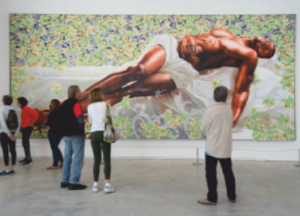“Katherine Rundell is a scholar, a fabulous writer and a born enthusiast,” said Matthew Reisz in The Observer. Earlier this year, she published an acclaimed biography of John Donne, charting his transformation from love poet to preacher. “But she is equally famous as an award-winning children’s author”, whose books are “shot through with a deep sense of the strange and often disturbing beauty of other animals”.
Rundell’s latest book consists of 22 short essays, each focusing on a particular endangered species. Designed to reignite a childlike sense of wonder, it is a book “full of weird and wonderful information”. Giraffes, we learn, “have been photographed at night with clusters of sleeping birds tucked into their armpits, keeping them dry”. To wash, swifts “fly through gentle rain, slowly, wings outstretched”. As an “exuberant celebration” of some of the creatures we share the planet with, Rundell’s book could “hardly be bettered”. At first glance its structure seems to suggest that it will be a “children’s wildlife encyclopaedia or a coffee-table Christmas gift book”, said Kathleen Jamie in The New Statesman. Yet Rundell’s purpose is far more serious. Running alongside her “delight and wonder” at the animals she depicts (hermit crabs can grow to be wider than three foot across – “too large to fit in a bathtub, exactly the right size for a nightmare”), is her despair at how our rapaciousness and “gross negligence” have endangered their very existence. In one especially “harrowing” passage, she describes a practice known as “extinction speculation”: the hoarding of rare animal artefacts – bear bladders, rhino horns, stocks of frozen blue tuna – on the basis that their value “would soar” should the species they come from go extinct. This “uniquely vile game”, Rundell points out, incentivises individuals and companies to subsidise yet more slaughter. A “thoughtful but unfussy writer”, Rundell is refreshingly original in her descriptions, said Tom Whipple in The Times.
Looking into the “big eyes” of a lemur (pictured), she is reminded of “a chemically enhanced young man at a nightclub who urgently wishes to tell you about his belief system”. She admits she is glad not be a Greenland shark: “I don’t have enough thoughts to fill 500 years.” Her book reveals a “quixotic self-confidence” – for Rundell has taken “a bet” that her descriptive powers will sustain our interest in a work that is “bitty and disjointed”, and lacks an overarching narrative. “Luckily, she is absolutely right.”


Average Rating